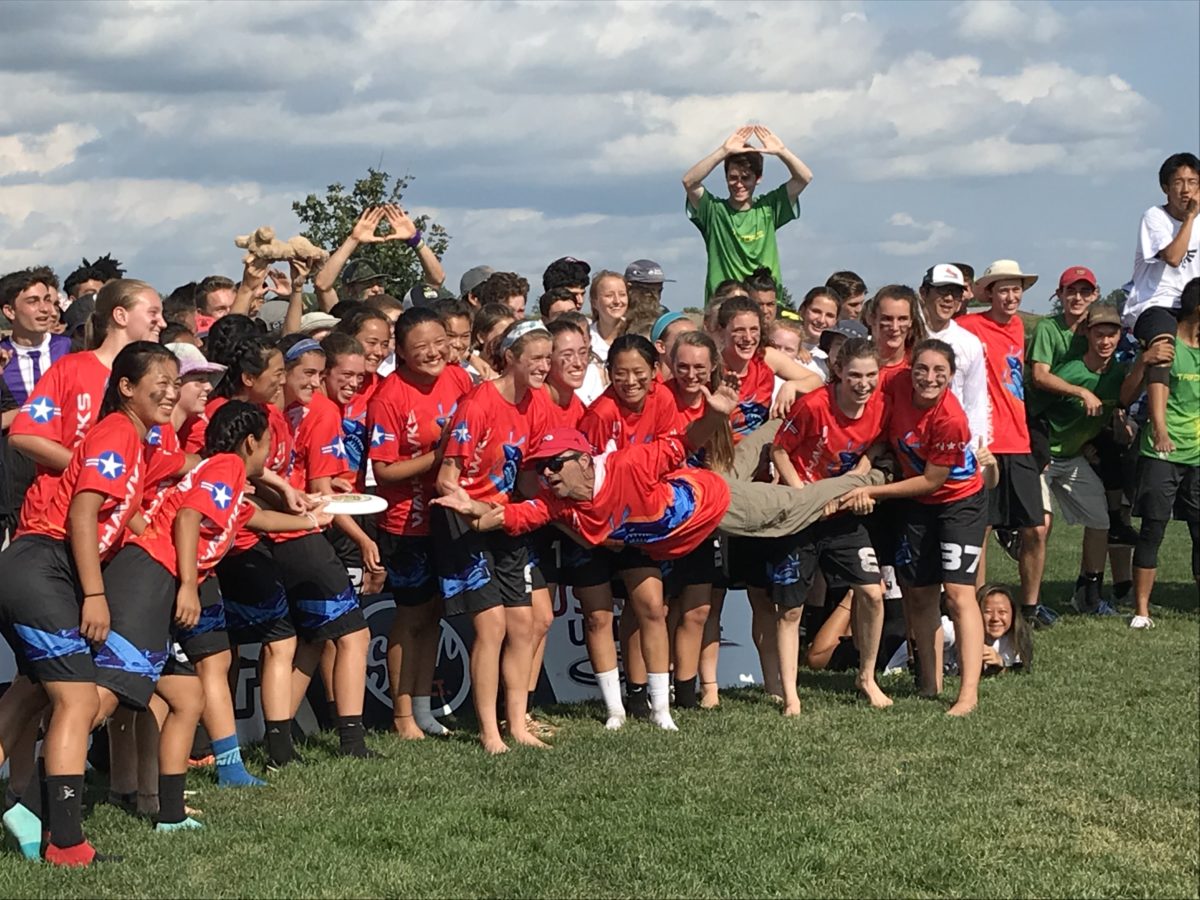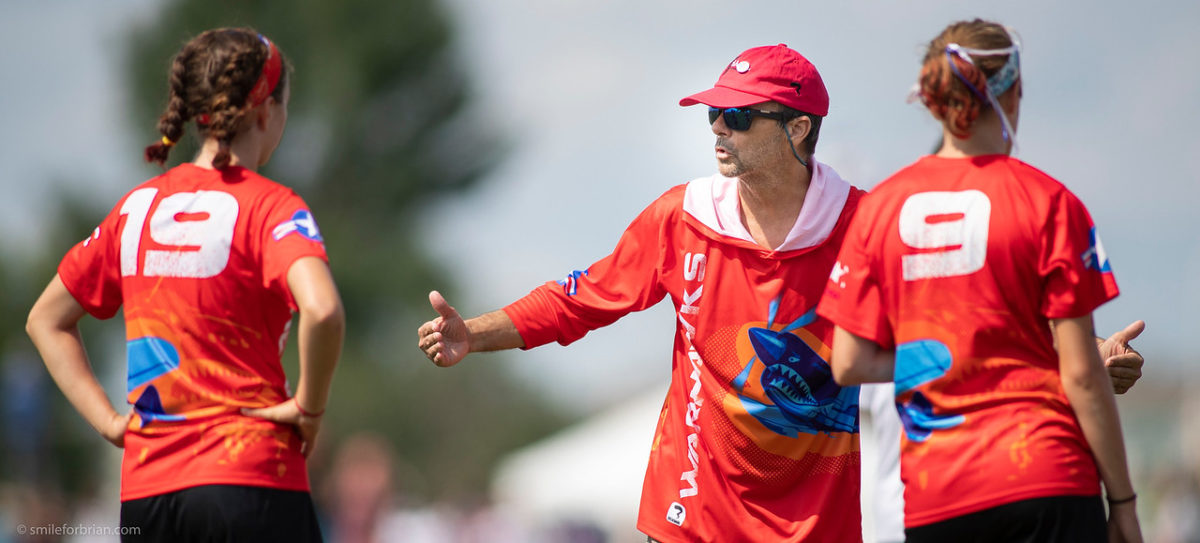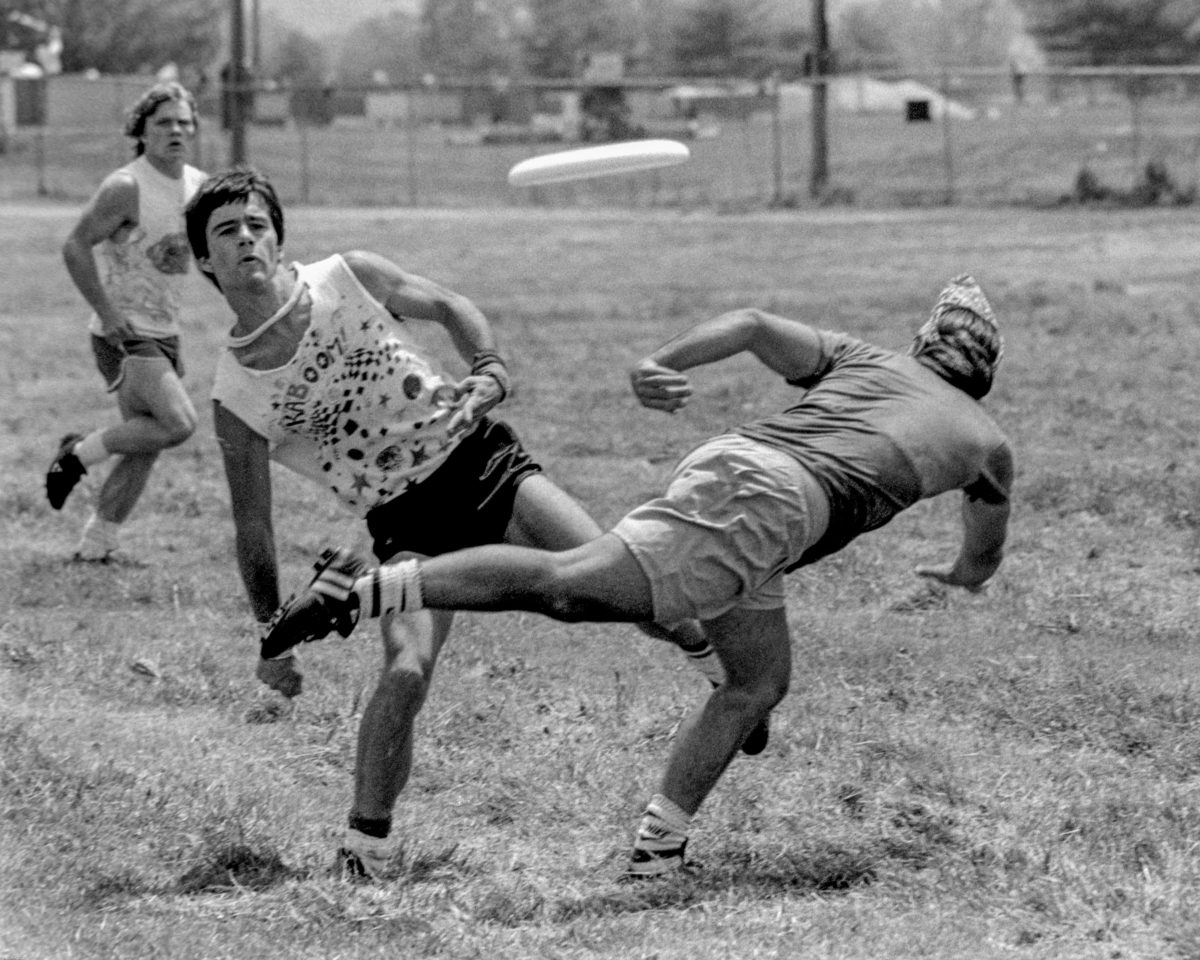Class of 2019
Brian Dobyns
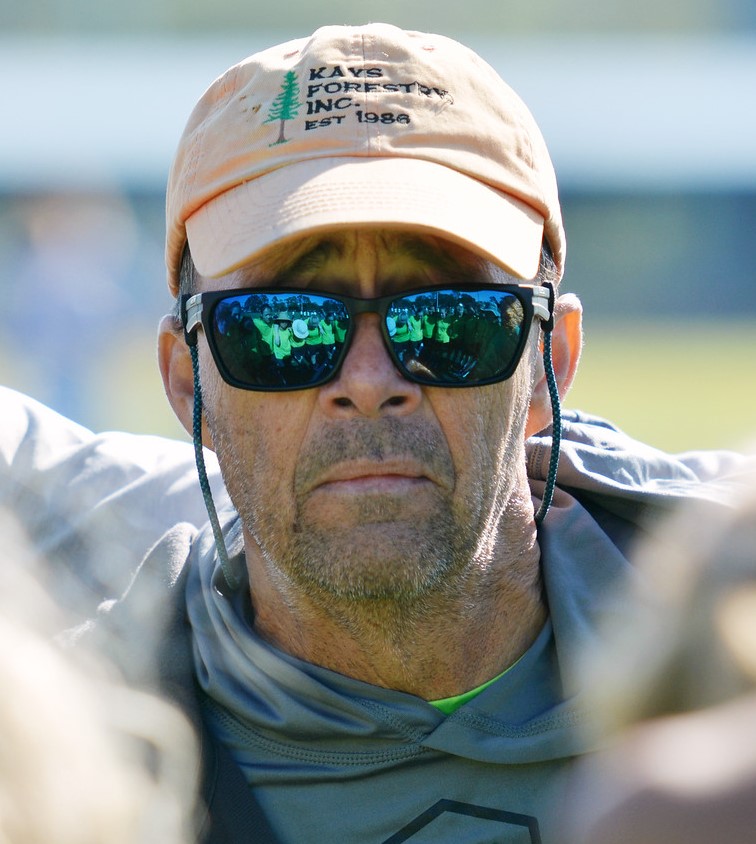
Brian Dobyns
Hometown: Efland, NC
Born: 1958
Died: 2020 (Age 61)
Career Information
Youth
College
Club
Grandmasters
Great Grandmasters
U.S. National Championships
1x U.S. Club Champion (1999)
1x U.S. Masters Champion (1991)
World Championships
2x World Champion (1990, 2000)
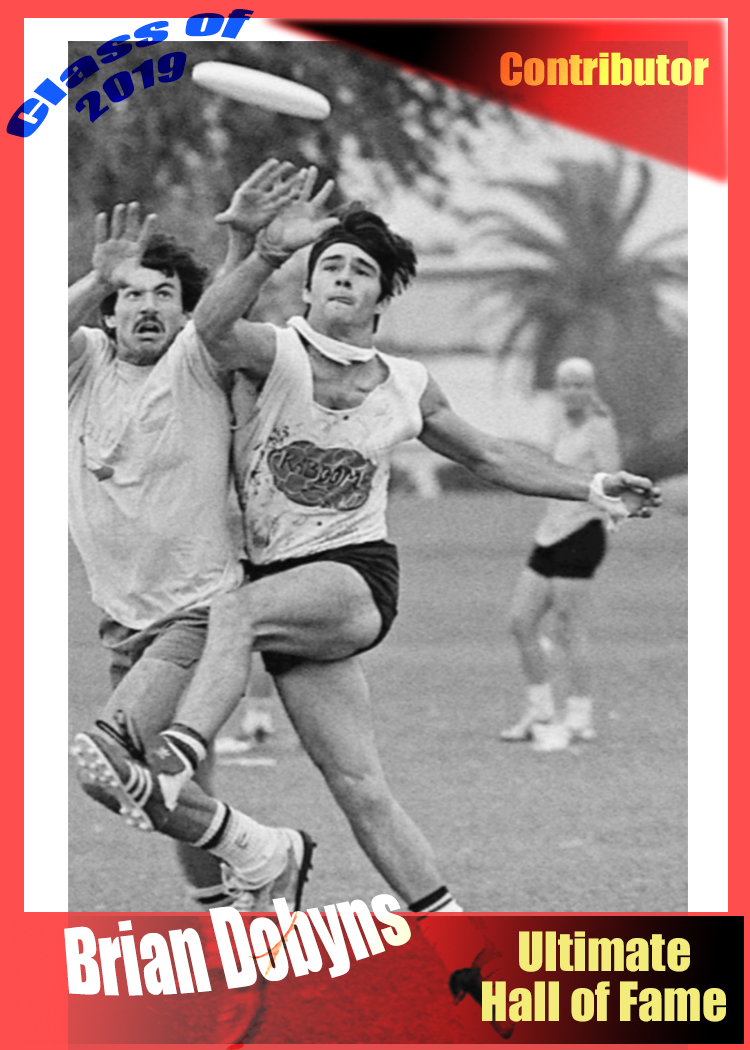
Brian Dobyns has played significant roles since the late 1970s in organizing local leagues and in coaching young women in North Carolina. His focus on building a strong local ultimate scene, exceptional coaching and dedication to our sport is his lasting legacy. A native New Yorker, Brian helped organize the New York High School Ultimate League in 1977, with Andy Borinstein, that four decades later boasts 23 schools. Together with his brother, Kenny, he started the New York Summer Ultimate League at Flushing Meadow Park in Queens in 1982, which incubated the player pool that fueled New York’s ascendance as an ultimate powerhouse for the following decade. After moving to North Carolina in 1987, Brian formed the North Carolina Winter Ultimate League, which continues to be the backbone for ultimate activity in the area. A student of the game, he also participated in the first Certified Observer Pool in 1990 and participated in the test of the original COP procedures manual.
Brian was one of the earlier dedicated coaches for ultimate and, over his career, worked with ten teams across eight divisions to grow the depth and breadth of play in the Triangle region of North Carolina. He began his coaching career with North Carolina State from 1996-2001 and they won the College Championships in 1999. He coached the women’s club team, Backhoe, from 2001-2006, going to Club Nationals six times and finishing second in 2004, and coached the University of North Carolina women’s team, Pleiades, from 2007-2010, going to the College Championships three times. After coaching the Elon women’s college team from 2011-2016, taking them to the College Championships four times, he coached the Triangle Ultimate YCC girls’ team from 2015-2018, leading the Warhawks to a Youth Club Championship title in both 2017 and 2018.
Brian began his playing career in 1978 at Hampshire College and played with various teams in New York and North Carolina until 2017 in the open, mixed, masters, grand masters and great grand masters divisions, with national championship titles in masters in 1991 and mixed in 1999, and world championship titles in masters in 1990 and mixed in 2000.
Contributions & Service
- 1996: Co-Coach of NC State Jinx (D-I college men's)
- 1977: Helped start the New York High School Ultimate League (HSUL) with Andy Borinstein and Woodly Thuys.
- 1997-2001: Head Coach of NC State Jinx, four D-I College Championships appearances, 1999 champions
- 1982: Co-Founder of the New York Summer Ultimate League (SUL) with his brother Ken, served as Commissioner for several years.
- 1988: Founder of the North Carolina Winter Ultimate League (WUL) and acted as organizer for two years. The league is now the Triangle WUL.
- 1990: Participant in the first Certified Observer Pool (COP), provided the sample test in the first COP procedures manual.
- 1994: Member of the COP Committee.
- 2001-2006: Coach of Backhoe (women's); six National Championships appearances; 2004 finalist.
- 2007-2010: Coach of UNC Pleiades (college women's); three National Championships appearances.
- 2009: Assistant Coach of Triangle Ultimate's YCC U-20 girls team
- 2009-2010: Coach of Triangle Ultimate's Youth Club Championships (YCC) U-20 boys team.
- 2015-2018: Coach of Triangle Ultimate's YCC U-20 girls team; 2017, 2018 YCC champions.
- 2009-2011: Coach of Carolina Friends High School.
- 2011-2016: Coach of Elon (D-III college women's); four D-III College Championships appearances.
- 2012: Started Efland Throwing Summer Camp (U-15) and served as the director and a counselor for five years.
- 2012-2013: Coach of Phoenix (women’s); 2012 National Championships appearance.
- 2015: Coach of Carolina Friends Middle School.
- 2015-Present: Advisor for the Triangle SUL girls' division.
- 2016-Present: Coach of Triangle Tourists (girls').
- Given several talks on different aspects of coaching for Triangle Ultimate, including one on coaching different age groups and one on coaching girls.
- Written about, taken photos of and made t-shirts for Ultimate.
Championship Tournaments
U.S. National Championships
| Year | Team | Placement |
|---|---|---|
| 1986 | KABOOM! Club Men | 3rd |
| 1987 | Chain Lightning Club Men | 7th |
| 1991 | Red Menace Masters Men | 1st |
| 1995 | Ring of Fire Club Men | 9th |
| 1999 | Raleigh Llama Club Mixed | 1st |
| 2013 | T-Rex Grandmasters Men | 10th |
| 2017 | Triaged Great Grandmasters Men | Quarterfinals |
World Championships
| Year | Tournament | Team | Placement |
|---|---|---|---|
| 1990 | WUGC Masters Oslo, Norway | U.S. National Team Masters Masters Men | 1st |
| 2000 | WUGC Heilbronn, Germany | Raleigh Llama Club Mixed | 1st |
Interview
Describe your major contributions to the growth and development of ultimate.
Brian Dobyns played a major role since the late 1970s in organizing local leagues and in coaching young people in ultimate. His focus on building a strong local ultimate scene and developing a youth coaching program is an integral part of that.
How did your contributions impact the sport and/or its organization?
The concept of accessible, local league play, with a strong emphasis on youth development and gender equity, has provided a template for other local organizations around the U.S. This is implicitly the European city club sports model, where the sport is pursued by players of all levels and ages, and where the strong community fosters the support of elite competitive clubs with a local identity.
How do you think the sport or its organization would be different if you hadn't made your contributions?
Brian’s contributions have been felt in two major ways. First was on the local communities he served in New York and North Carolina, where the impact of the local leagues cannot be understated, and his success as a coach of the girls’ programs is evidenced in championship success. Second is the bigger picture, where USA Ultimate is now highlighting the need for strong local and state programs, and his template for the approach is being duplicated around the country.
Why did you do what you did for UPA/USA Ultimate?
Brian loves the game of ultimate. He loved playing and he loved getting others to play, and to play well. He was a strategic player and coach, and his passion was felt by all those around him.
During which years did you make your principal contributions? How much time did you typically spend in making your contributions during your peak years?
Brian helped organize the New York High School Ultimate league in 1977, with Andy Borinstein; now four decades later boasts 23 schools. Together he, and his brother Ken, started the New York Summer Ultimate League at Flushing Meadow Park in Queens in 1982, which incubated the player pool that fueled New York’s ascendance as an ultimate powerhouse for the following decade. After moving to North Carolina in 1987, Brian formed the North Carolina Winter Ultimate League, which continues to be the backbone for ultimate activity in the area. Brian’s coaching education started as a captain on many teams he played for, and those skills were first used when he was invited to coach N.C. State men in 1996 as a co-coach with Charles Kerr. His history includes coaching 11 different teams in eight different divisions, with nine of the teams being mixed, girls, or women and five of those teams being youth teams.
Have you made other contributions to the development of ultimate?
Brian participated in the first Certified Observer Pool in 1990 and participated in the test of the original COP procedures manual. He has also written about, taken photos of and made t-shirts for ultimate.
Why do you believe you are worthy of being inducted into the Ultimate Hall of Fame?
There are many great players and contributors who have made ultimate what it is. Brian developed the element of the local community of the sport as a means to not only broaden access to the sport, but also to develop the talent pool so as to foster competitive excellence that could go on to the national and international levels.
